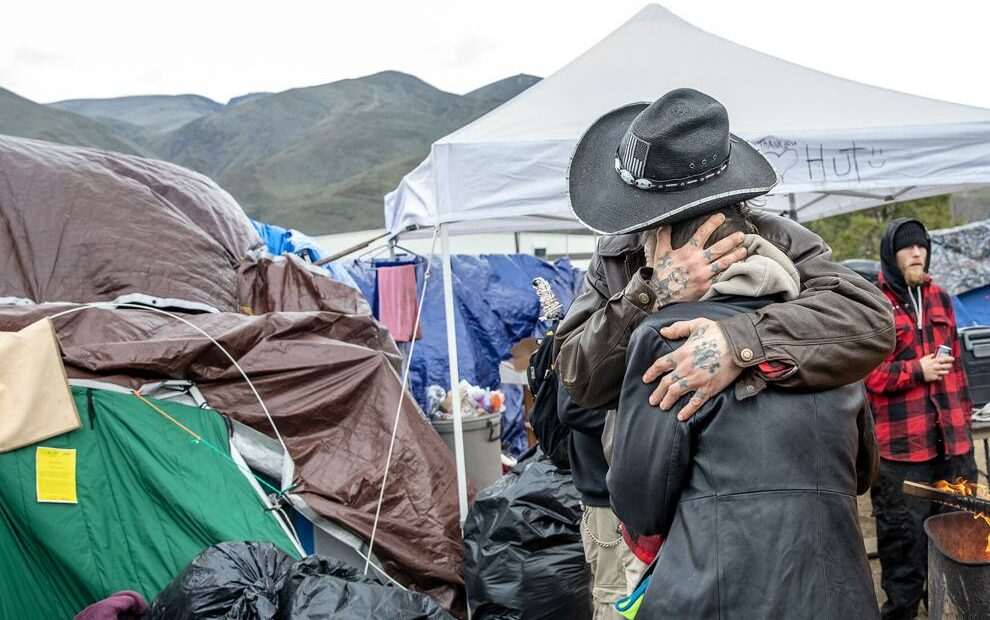
Unhoused Clarkston residents file motion for preliminary injunction on camping ordinance
Listen
(Runtime 0:55)
Read
An attorney representing unhoused Clarkston residents filed a motion Friday for a temporary restraining order and preliminary injunction against Clarkston.
The motion would temporarily bar the city from enforcing an ordinance that limits camping at Foster Park, on Diagonal Street in Clarkston, which is the only city property where unhoused residents are allowed to stay, from 9 p.m. to 7 a.m.
The group, which includes unhoused residents Scott Darrington, Nancy Caskey, Tamara Apfelbeck and John Parke, as well as the nonprofit group Elves for the Homeless, previously filed a lawsuit April 5 against the city alleging the city’s ordinance disproportionately affected them because of their disabilities.
Those disabilities collectively included a seizure disorder, cancer, a tumor, post-traumatic stress disorder and depression.
In the motion filed Friday, the plaintiffs focused on the city ordinance’s potential conflict with a Ninth Circuit Court of Appeals ruling that stated homeless people cannot be punished for sleeping outside when they have no other options.
That case was challenged in the U.S. Supreme Court in April, but justices remained divided on the issue. In the case where Supreme Court justices are split on a decision, the lower court’s ruling stands.
In the filing, John Wolff, Northwest Justice Project attorney, wrote that a temporary injunction was warranted because unhoused residents would suffer irreparable harm from the continued enforcement of the ordinance.
Failure to follow the city ordinance can result in a $1,000 fine, 90 days in jail or a six-month exclusion order. Plaintiffs argue that following the ordinance requires them to risk their health by enduring inclement weather without shelter during hours when camping is not permitted.
The motion included signed affidavits collected in February from the four unhoused plaintiffs named in the April 5 complaint, as well as four other unhoused residents, detailing the challenges of living within the ordinance’s constraints.
“It gets dark long before 9 p.m. in the wintertime, you need shelter long before that,” Parke wrote in his affidavit. “It means you have to wait until 9 p.m. to set up a tent, which means you can’t even get to sleep until 10 p.m. or later, assuming you don’t have trouble sleeping. Then you have to wake up at 6 a.m. to break it all down, again in the dark, when it’s freezing out.”
Darrington, 47, wrote he had lived in the Clarkston area most of his life and detailed health issues, including a seizure disorder and frostbite, which at the time had threatened to require amputation.
Parke and Darrington wrote that city officials told unhoused residents they could move to a strip of land behind the Clarkston Walmart before later issuing a notice of trespass in February after a deed search revealed the land belonged to an adjacent landowner and not the city.
City officials previously stated the area was identified as public land and unhoused residents might legally stay, but they had not “endorsed or condoned” the area as a settlement.
Darrington wrote that the ordinance limiting camping made him unable to live in the city.
“I’d have to pack up every single morning, then carry all my stuff with me, and then set it back up,” he wrote in a Feb. 20 affidavit. “It’s impossible to live like that.”
Apfelbeck, 39, wrote in her affidavit that she moved to the Nisqually John boat landing area following the city’s ordinance, a 15-mile commute from her job, where she made $16.42 an hour. Apfelbeck wrote she was working to save enough money to move into transitional housing and regain custody of her son following a fire that destroyed her home.
“This has been an impossible battle to fight,” Apfelbeck wrote. “I went from being housed and living with my son, and just because my house burned down, I’ve lost everything, and I’m fighting so hard to get it back. I can’t get my son back until I’m housed, but I can’t get housed until I can save enough money, which is really hard.”
A representative for the city said they would not comment on pending litigation.
















